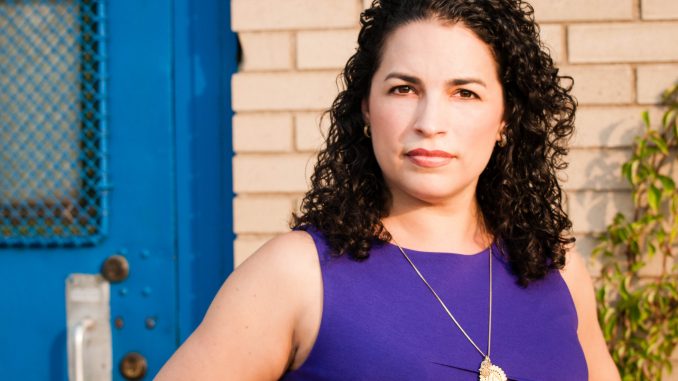
Dr. Nicole Gonzalez Van Cleve wasn’t certain that she could have an impact as a court clerk in Chicago-Cook County.
“Attorney’s come into a system and they are shocked by the racial divide that is present in the court,” said Van Cleve, an assistant professor in the Criminal Justice department at Temple.
Gonzalez Van Cleve released “Crook County,” a look into the “racism and injustice in America’s largest court” in May 2016 through Stanford University Press.
The assistant professor spent several years researching and interviewing prosecutors, judges and attorneys to discover that racism exists within the practices of the criminal court.
In the beginning of her career, she assumed that there were many “good prosecutors,” but during her time in Chicago-Cook County she saw something far different, she said.
In the book, Gonzalez Van Cleve recounts her time as a young court clerk, where prosecutors took her “under their wings” and would refer to defendants with racial slurs. She recalled a supervisor having a framed evidence photo of an African American boy who was shot by a store owner.
“I saw a stream of poor defendants, mostly people of color and I saw that there was a lack of dignity in how they were being treated even though there were all these types of legal protections,” Van Cleve said. “In that environment, it became easy to lie or hide moments of egregious abuse by the police officers.”
“Crook County” mentions visuals that are reminiscent of the Jim Crow era, like “No dogs, No Negroes, No Mexicans” signs.
“I am challenging readers to think back at our American history, and think back at how some of these racist practices that existed what seems to be a long time ago,” said Gonzalez Van Cleve, who has a doctoral degree in Sociology from Northwestern University. “When you think about that sign, it has very similar dialogue to what we are seeing on our political stage, but also in our criminal system as well.”
Gonzalez Van Cleve also allowed Temple students this past fall to have a look into a chapter of “Crook County” as it was being written.
“Dr. Van Cleve used chapters of ‘Crook County’ in tandem with real-time events happening nationwide,” said Chelsey Cain, who graduated with a degree in Psychology in fall 2015. “‘Crook County’ was enlightening and unveils the inner-workings of the criminal justice system.”
Because of her knowledge of Chicago courts, Gonzalez Van Cleve was on MSNBC’s the Rachel Maddow Show to discuss the case of Laquan McDonald, an unarmed 17-year-old African American boy who was shot and killed in the city by a police officer. She said this case was an inspiration to write “Crook County.”
“In all the discussion about racial profiling and brutality by police, we tend to forget that the police are but one part of a vast system of criminal justice,” said Matt Wray, an associate professor in the sociology department. “This book shows that mass incarceration is not just a matter of what happens on our streets and communities, but is also a result of what happens in the halls of justice.”


Be the first to comment